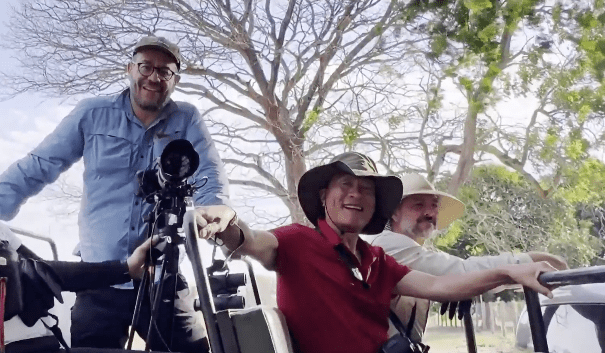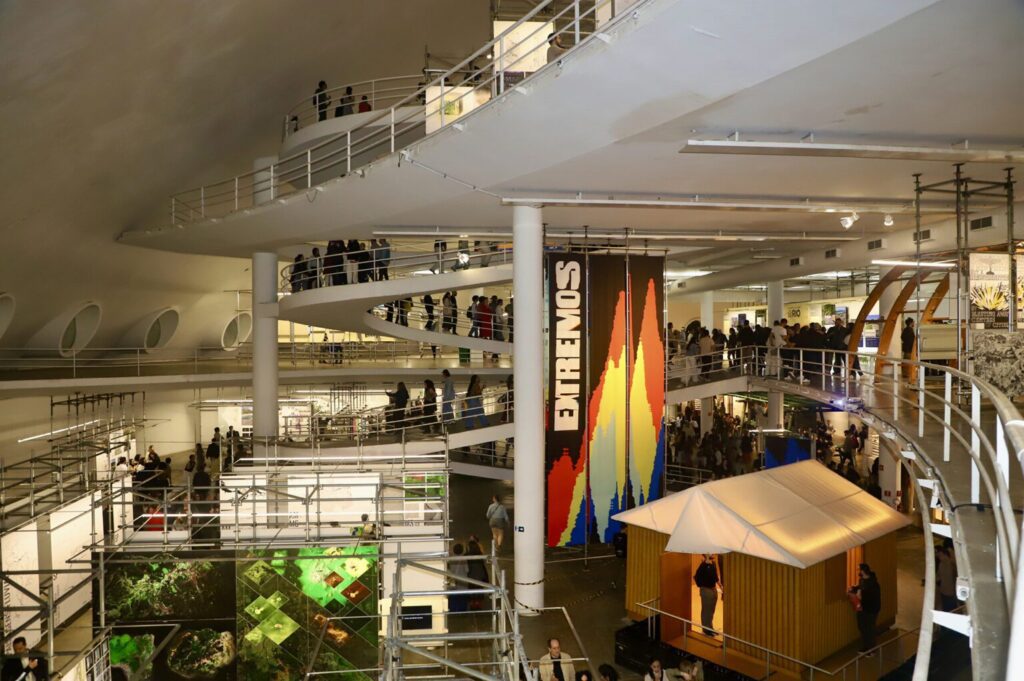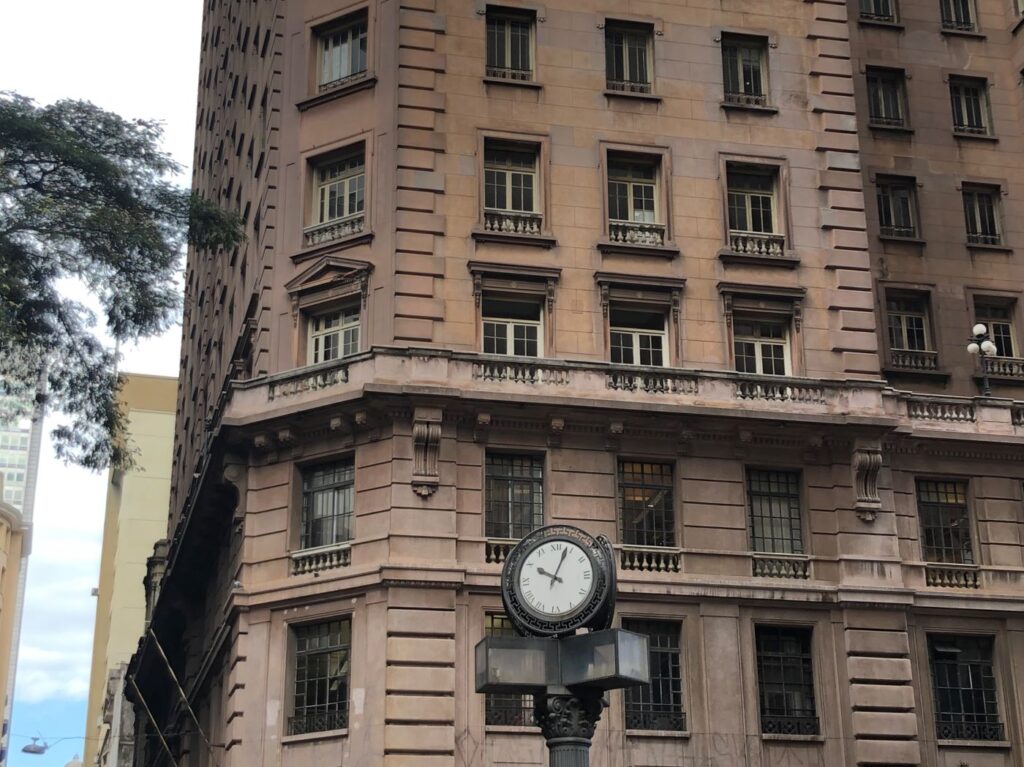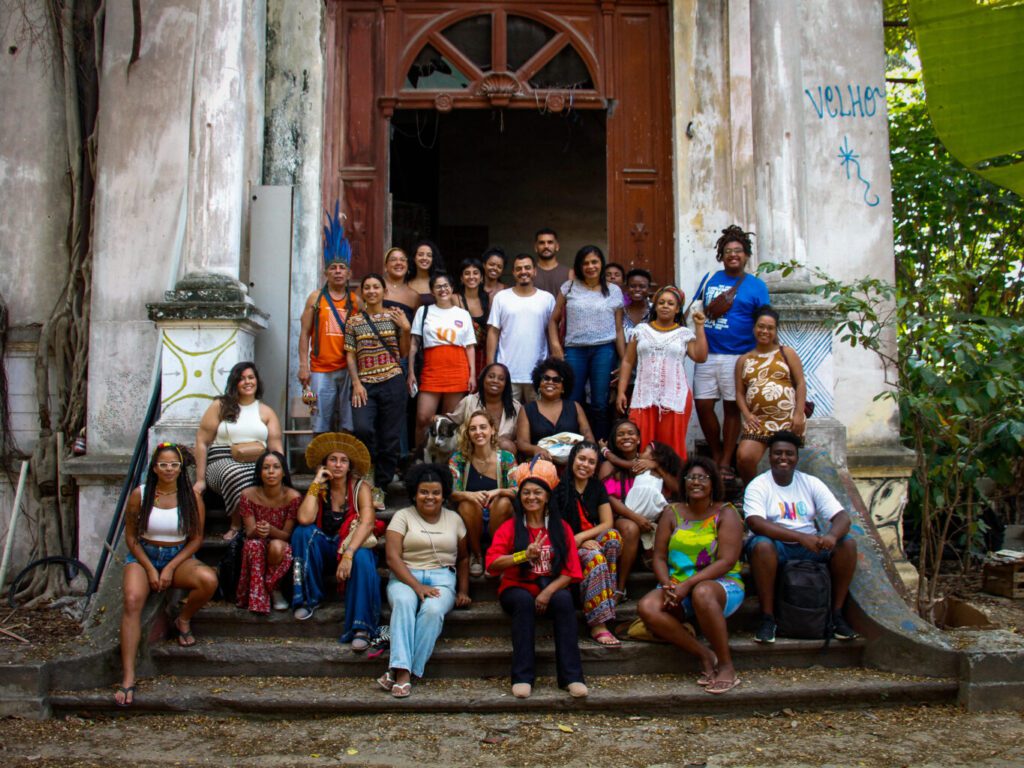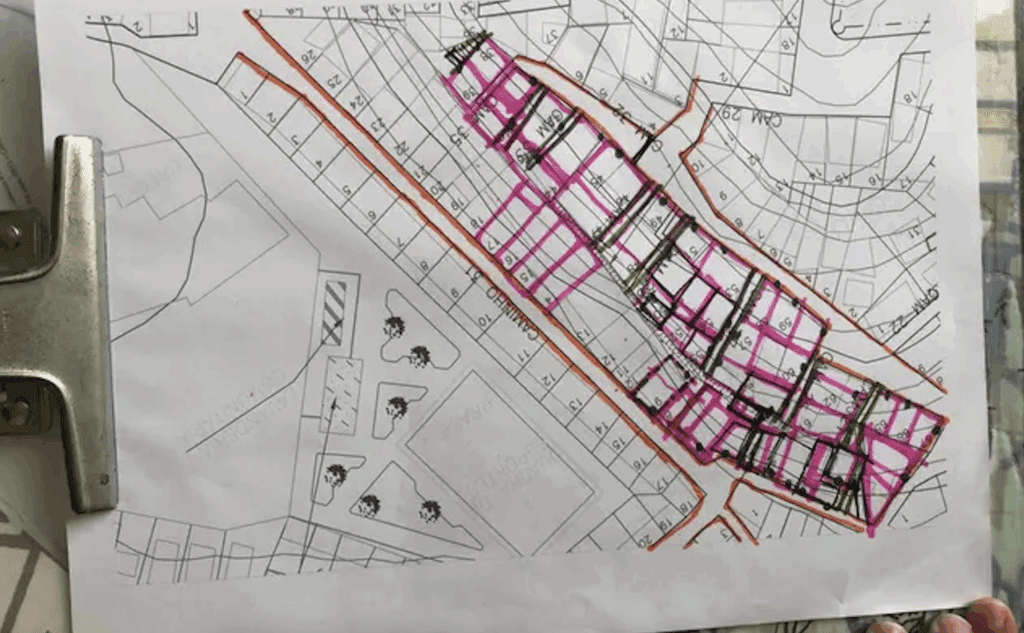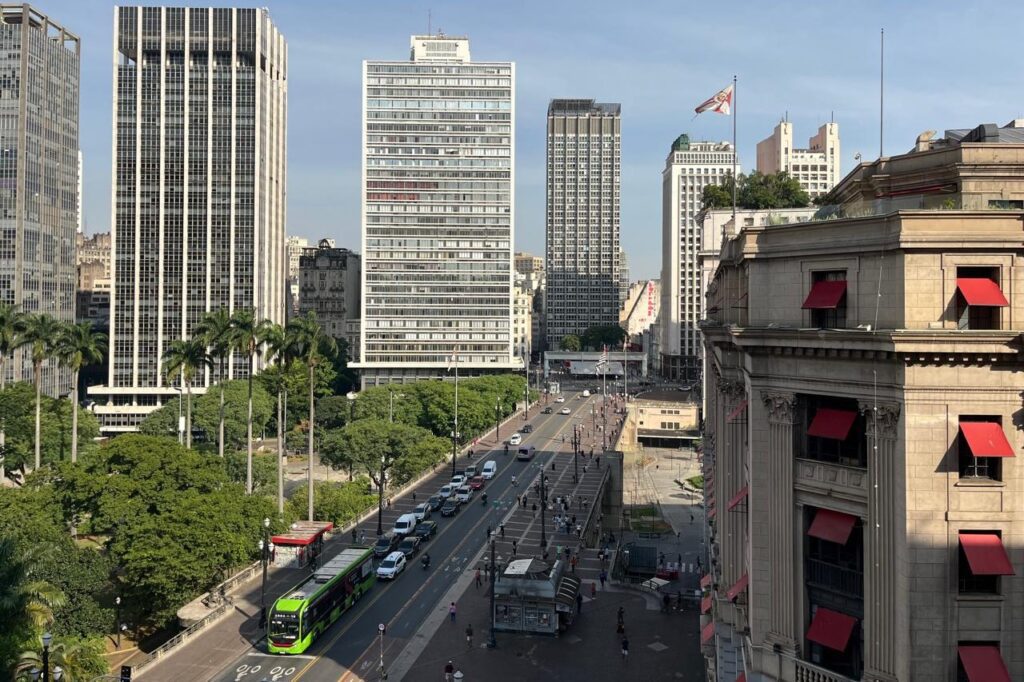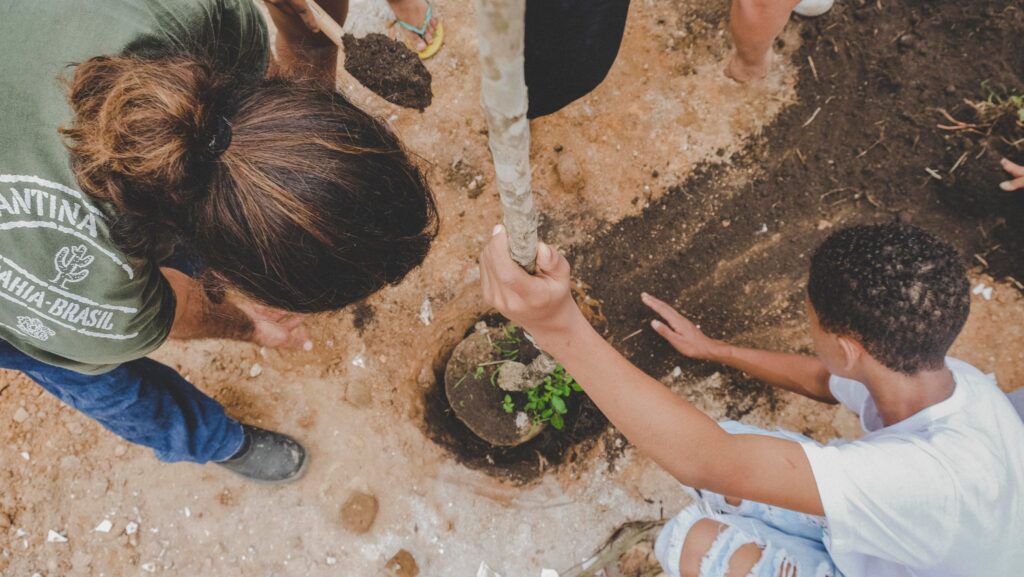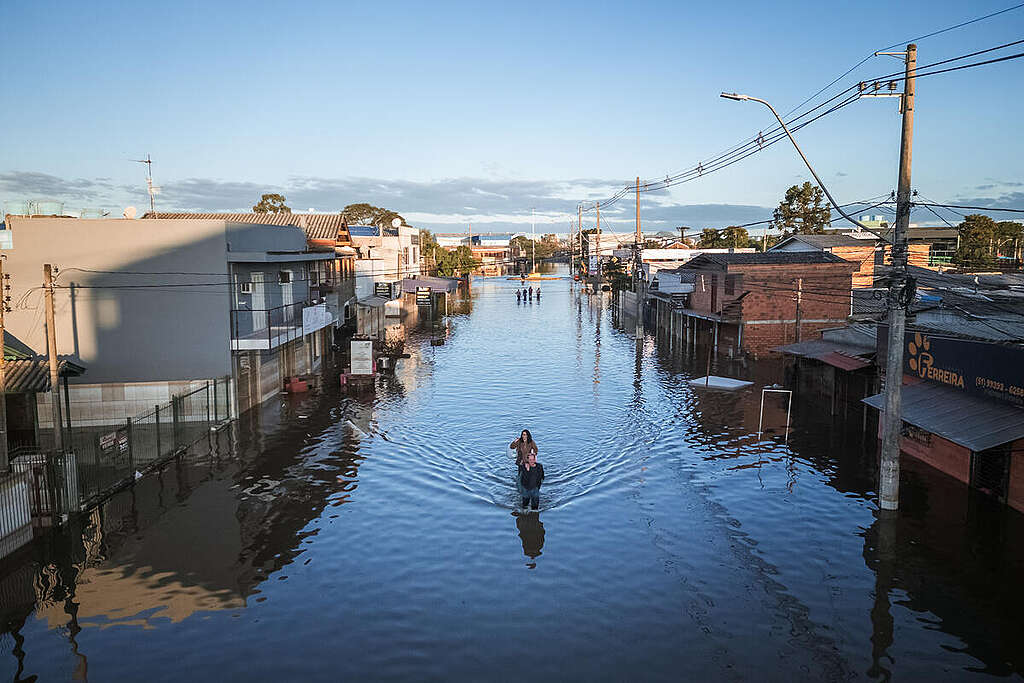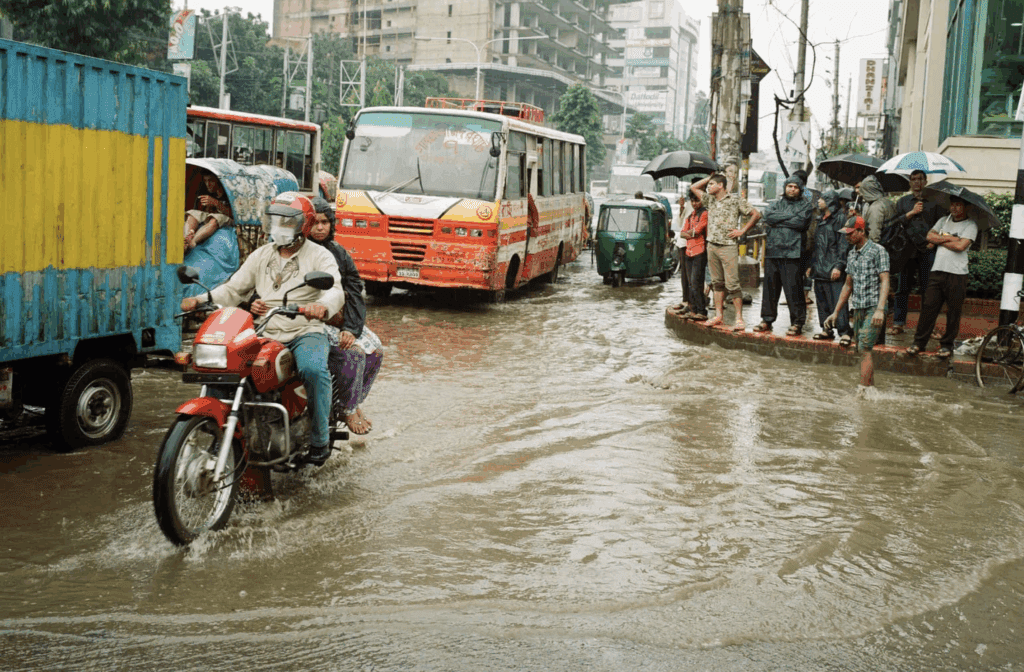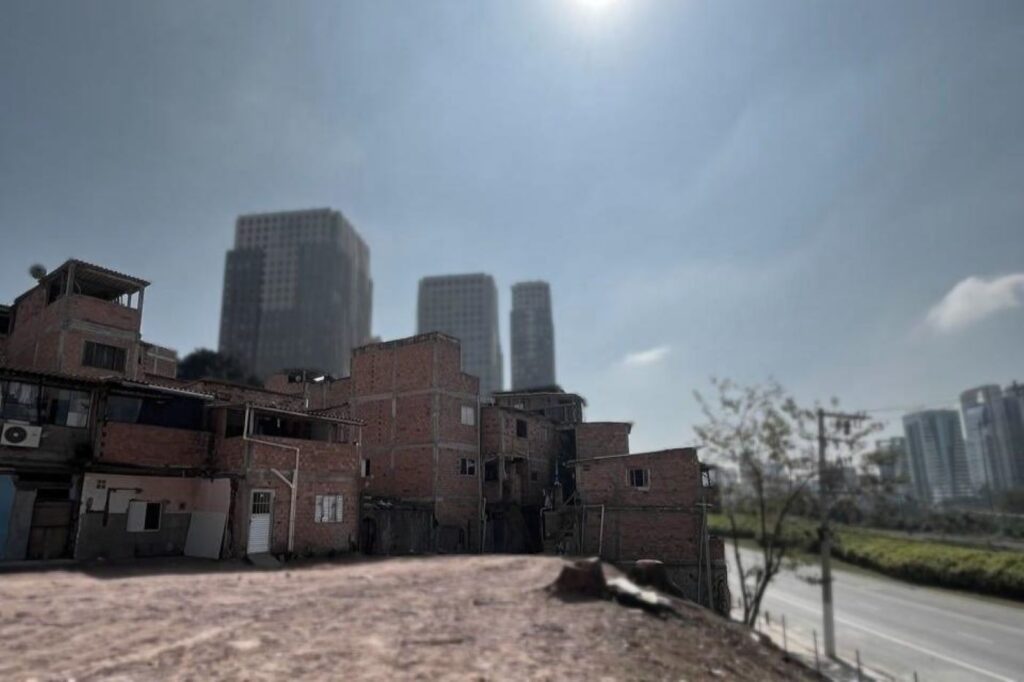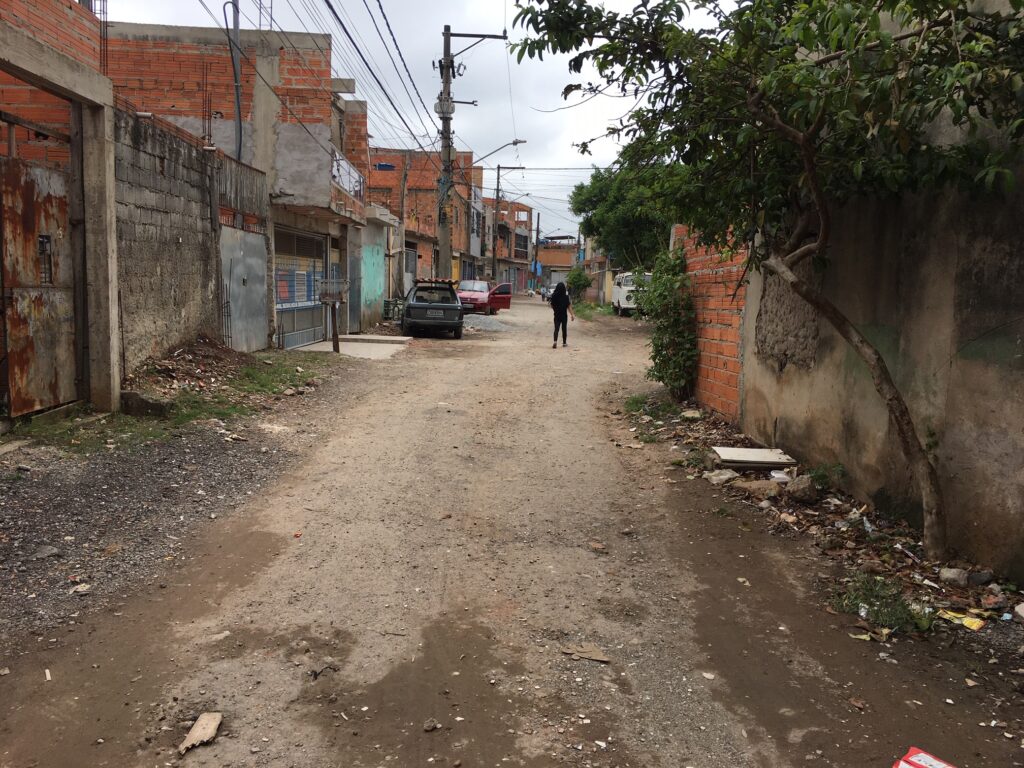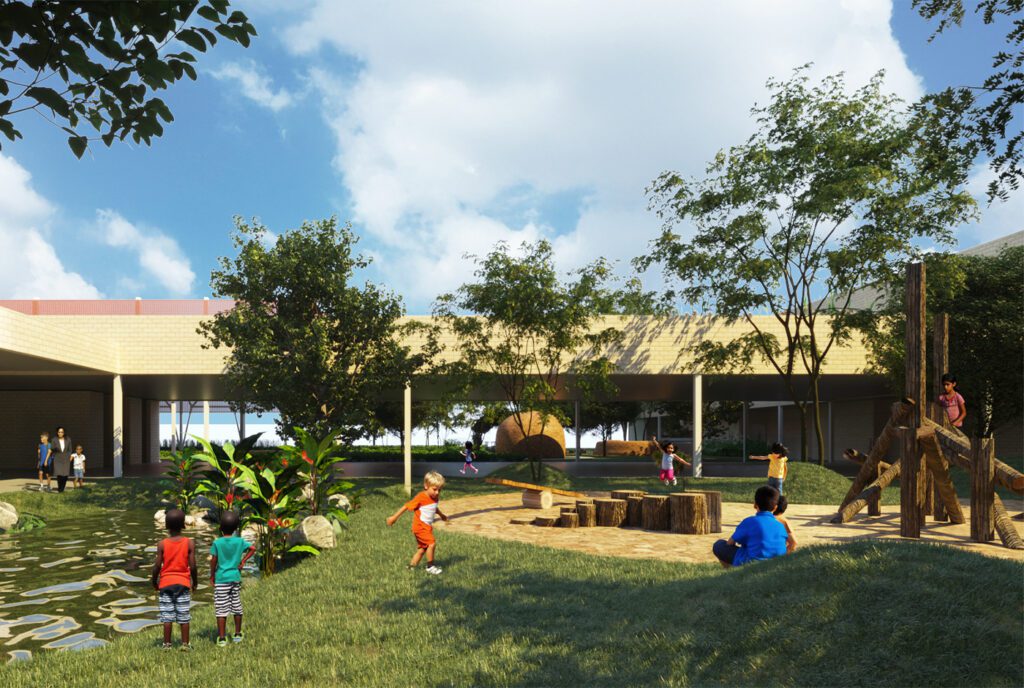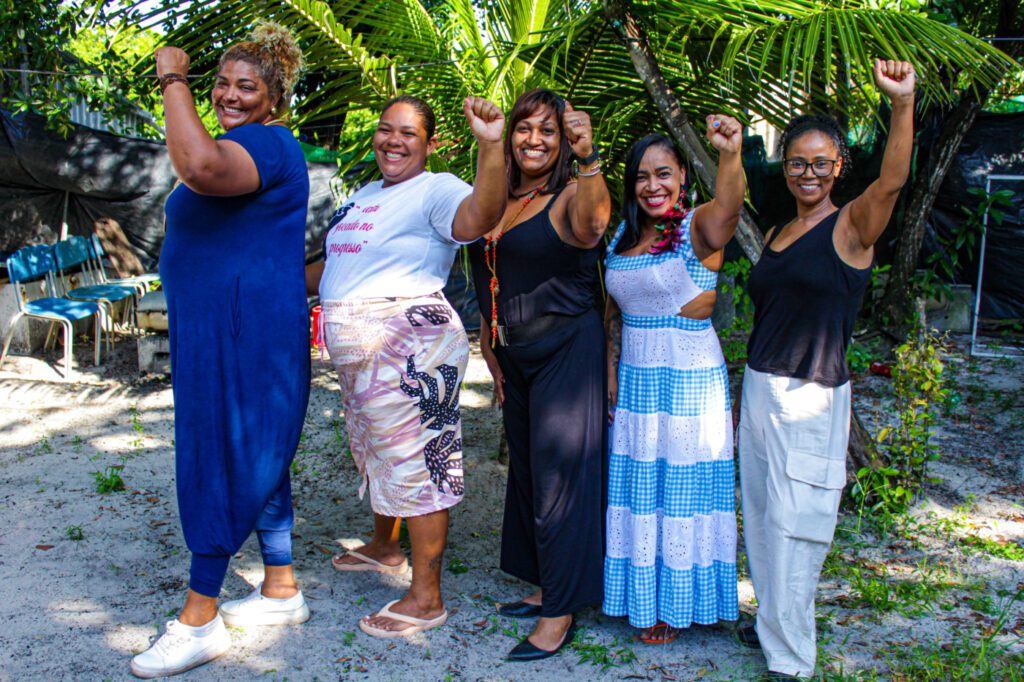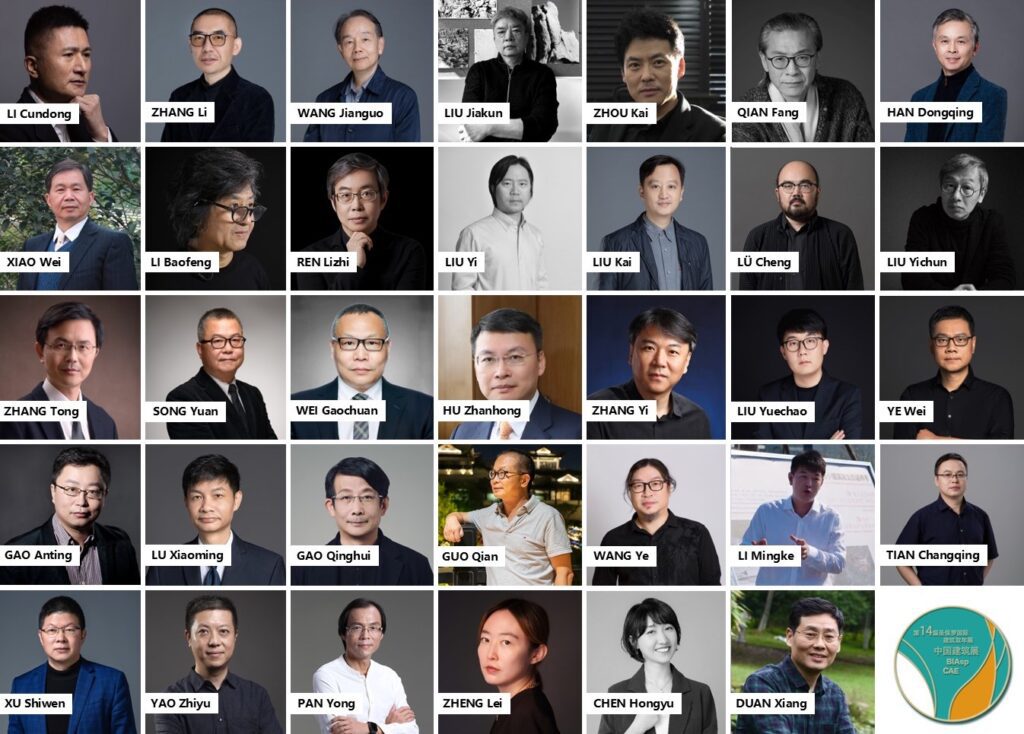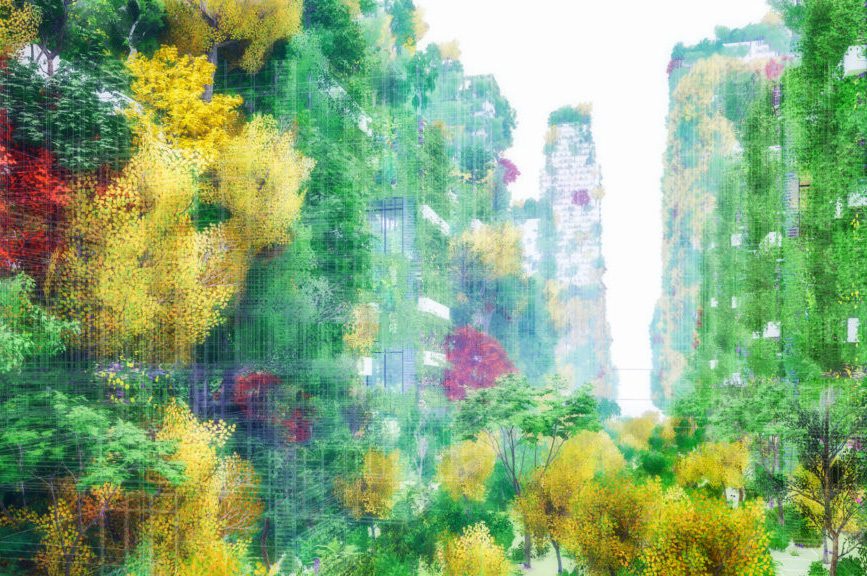Urgent Panorama! The space as an act of permanence aims to bring to the Biennial a critical urban situation: Jardim Panorama and the Paraisópolis Complex, which are facing imminent redevelopment projects led by the City Hall, within the scope of the Faria Lima Consortium Urban Operation. The proposal is coordinated by Cristina Wehba, IABsp representative at the Faria Lima OUC (University of São Paulo), André Dal`Bó, professor representing FAUUSP, and Nelson Brissac (PUC-SP).
Jardim Panorama, a community historically threatened with eviction, is located next to large real estate developments on the banks of the Pinheiros Canal. It is a strategic area in the metropolitan restructuring, driven by the Novo Rio Pinheiros project and the implementation of Bruno Covas Park. This process could exacerbate social inequality and the exclusion of community residents from social housing and planned public spaces.
Within the same perimeter, the communities of Paraisópolis, Jardim Colombo, and Porto Seguro form one of the city's largest favelas, a territory of enormous social, urban, and environmental complexity, the target of numerous research projects and government-sponsored interventions. Like Jardim Panorama, the favela is located on steep slopes and is home to numerous streams, posing significant challenges for drainage and urban development solutions.
By bringing together research, art, and community action, the proposal affirms space as an act of permanence and demands that redevelopment ensure inclusion, decent housing, and qualified access to public spaces for those who build the city every day—with the exchange of experiences between territories as a basis for political coalition, effective participation, and influence in decision-making.
Team:
Cristina Wehba — urban architect, PhD (FAU USP), IABsp representative at OUCFL.
André Dal'Bó — urban architect, professor at FAU/Design-USP, researcher associated with the Université Paris Nanterre.
Nelson Brissac — philosopher, PhD (Sorbonne), organizer of Arte/Cidade. Samira Rodrigues — urban architect, master's degree (FAU USP), IABsp representative on the CMH and the ZEIS Council; advisor to CAU/SP (ATHIS).
Cristiane Farah Kairalla — educator, specialist in education, art and popular culture, and environmental education.
Residents and leaders of Jardim Panorama
Agenda (events open to the public)
OCTOBER 14, 2025 – OCA AUDITORIUM (IBIRAPUERA PARK)
A day of debates and presentations that seek to situate the territories within the context of the redesign of the metropolis, discussing government management projects and the importance of social participation in defining public policies.
10am to 1pm – Morning
Sustainability in projects for the urbanization of precarious settlements – Viviane Rubio (FAU Mackenzie).
Hydrographic basin notebook: Pirajuçara stream basin – André Sosnoski (FCTH).
The community in the construction of projects and public policies
Introduction – Garibaldi Santos / Renata Alves dos Santos and Gilvan Oliveira – Union of Residents and Commerce of Paraisópolis / Joades Arruda Silva – Union of Jardim Colombo / Maura da Conceição Pereira da Silva – Porto Seguro Community Association
art + architecture + urban planning
Projects on slopes and banks – Marcos Boldarini, Maurício Adinolfi
Panorama Lab – Felipe Brait, David Da Paz, Milena Durante
Registration can be done here.
2pm to 5pm – Afternoon
Application of SuDS for flood mitigation in Paraisópolis – Renato Anelli (FAU Mackenzie), Thamires Souza (FAU Mackenzie), Luciano A. Silva (Univ. São Judas Tadeu).
Urban Redevelopment of Jardim Colombo – Adriana Levitsky
Drainage in hillside areas – Afonso Castro, Jéssica Fernandes (FAU Mackenzie)
Paulo Pellegrino (FAU USP) – Drainage projects in the Pinheiros River Basin
Registration can be done here.
OCTOBER 15, 2025 – IABSP (BENTO FREITAS STREET, 306 – REPUBLIC)
Discussions will continue, focusing on institutional relationships and project developments, reinforcing the exchange of experiences and collective construction among different actors and territories. There will also be presentations of artistic projects, paving the way for interventions in Jardim Panorama.
Morning
Paraisópolis Workshop – coordination: Denis Oliveira de Souza Neves (ArqCoop+), Afonso Castro, Jessica Fernandes (FAU Mackenzie).
Representatives of Paraisópolis, Jardim Colombo and Porto Seguro
Facilitators: Laryssa Kruger (FAU USP, Insper City Center), Heloisa Escudeiro (Mackenzie / FAU USP, Insper City Center) and Juan Sebastian Bustamante (University of Medellín, Colombia).
Panorama by residents – Welton Oliveira, Carolina, Marcos
Afternoon – 1:30 pm to 7:00 pm
Urgent Panorama! Caroline and Welton (Jd. Panorama Favela Residents' Association)
Participatory processes, removals and the Panorama Garden at OUC Faria Lima – Cristina Wehba, Christiane Kairalla, Debora Bruno, André Dal´Bó
Jardim Panorama by residents – Caroline, Diego, Welton, Dé, and other residents – A report on the history and memories of the neighborhood.
Jardim Panorama: a history of conflicts – Mariana Fix (FAU USP)
Joaquim Campolim (FFLCH) – The capitalist production of space on the margins of formality: the Jd. Panorama favela
The banks of the Pinheiros River: the Panorama and the New Pinheiros River project – Nelson Brissac
Art, infrastructure and real estate speculation – Guilherme Wisnik (FAU USP);
Panorama and policy for favelas in São Paulo – Councilwoman Keit Lima
Chat with director Alexandre Leco Wahrhaftig and screening of the film PANORAMA (2021, 66 min)
The program also includes:
OCTOBER 16, 2025 – VISIT TO THE PARAISÓPOLIS COMPLEX
Meeting with communities at Legado Paraisópolis, Melchior Giola Street.
OCTOBER 19, 2025 – VISIT TO THE PANORAMA LAB PROJECT IN THE PANORAMA GARDEN
Closing event in the territory, with video mapping, participatory dynamics and a major event by the Panorama LAB collective.


